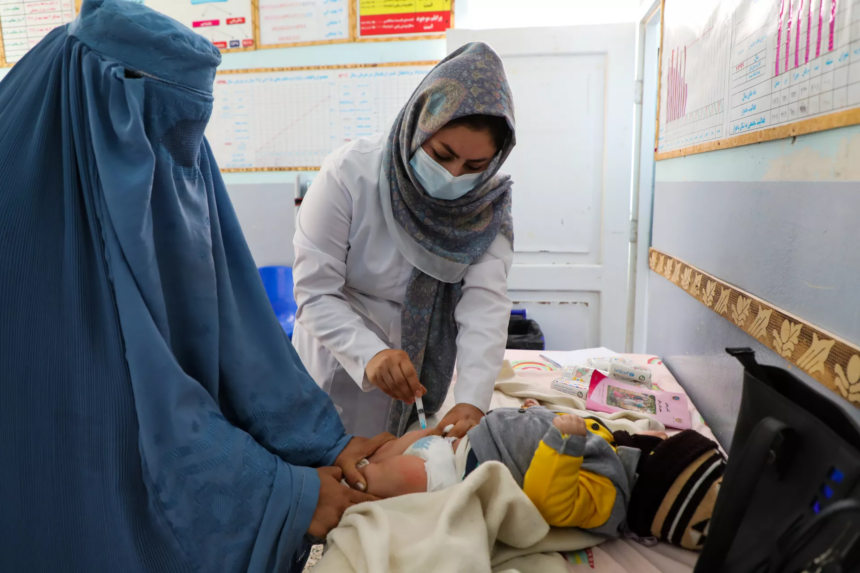RASC News Agency: The United Nations Children’s Fund (UNICEF) has raised concerns over the severe lack of access to basic healthcare services in Afghanistan, particularly in rural areas. The organization warns that this crisis poses a significant threat to children’s health, facilitating the spread of preventable diseases. According to UNICEF, a staggering 55% of Afghanistani families remain deprived of essential healthcare services. In a report published on Wednesday, April 2, UNICEF underscored the dire public health conditions affecting numerous families. The report attributes the widespread prevalence of diseases such as diarrhea, vomiting, and gastrointestinal infections to inadequate sanitation infrastructure and environmental contamination. One of the most pressing issues highlighted is the absence of proper toilet facilities, which has led to open defecation, further polluting the environment and exacerbating health risks.
To tackle these challenges, UNICEF has initiated comprehensive awareness campaigns in affected communities, urging residents to construct latrines in their homes. The organization reports that, following these initiatives, a significant number of rural households have begun building toilets, marking a crucial step toward improved sanitation. Despite these efforts, more than half of Afghanistani families still lack access to fundamental sanitation services, including clean and private toilets, safe sewage disposal, and access to uncontaminated water for washing. The situation is particularly dire in rural regions, where over two-thirds of the population continues to suffer from inadequate sanitation infrastructure.
In response to this escalating crisis, UNICEF, in collaboration with the European Union, has launched a targeted initiative to support local communities in eradicating open defecation through educational and community-driven hygiene programs. These initiatives aim to transform sanitation habits, encouraging the adoption of proper waste disposal practices. UNICEF has called for immediate international intervention and increased humanitarian assistance to address Afghanistan’s worsening public health emergency. The organization stresses the urgent need for comprehensive healthcare reforms, particularly in underserved regions, to safeguard millions of vulnerable Afghanistani families from preventable health crises.






